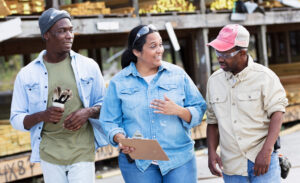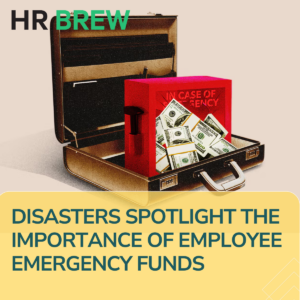Updated: Dec 16, 2019
By Rachel Schneider, Canary CEO
This article was originally published on Medium.

My job for the next year is to explore how small, strategic cash infusions can make a large impact on someone’s life — and to work to make them more broadly available. The basic idea is that sometimes, someone who is financially struggling may just need a little boost, or a bridge from here to next week. And, that, while yes, of course, we should expect people to save, borrow and plan so that they can give themselves that boost or that bridge — sometimes, not always, but sometimes — the best path is to simply find a way to get that person the money they need in that moment. There are moments when a small amount of cash, given in the right way, can go a long way to helping someone to be more resilient or to take advantage of economic opportunity.
I’ve been on the road most of 2017 talking with people about The Financial Diaries. It’s given me a chance to talk with a lot of people about this idea. Most of them are inspired by it. The Omidyar Network pushed me and CFSI to think about this in the first place, building on the work we had done at CFSI to define financial health and to explore the financial lives of struggling families through the U.S. Financial Diaries. (You can read more about that work here.) This idea seemed to connect naturally with how they were already thinking about the future of work and the evolving social contract. (You can read more about that work here and here.) Our initial inquiry motivated us to go further, setting up a partnership with the Aspen Institute Financial Security Program (FSP) to advance this idea.
But others immediately say it’s impossible — “Americans don’t believe in hand-outs.” They mean both the donors, and the recipients. People neither want to give, nor to receive, charity. There’s some truth to that.
Even some of those who do believe that it is the right thing to do to tackle our nation’s widening income and wealth inequality head on simply believe that there is no political will to seek greater economic security for more people, let alone greater economic equality. There’s some truth to that too.
But we are in a moment of incredible economic dislocation for millions of families. We can’t just wait it out. We need new solutions.
Many workers — even those with full-time jobs — experience volatile and unpredictable cash flows. That means that even working families whose annual income is sufficient to cover their annual costs sometimes struggle to come up with enough cash on hand to pay this week’s bills. These moments of struggle are meaningful, often creating hardship that is far out of proportion to the cash shortfall.
These moments are also inextricably linked with changing dynamics in the American economy — dynamics that are far outside of any individual’s control. The labor market is changing. It is delivering fewer middle-skill, middle-income jobs and more jobs that require workers to bear the risk of economic ups and downs. Whether we blame it on globalization or automation, the fact is that the future of work does not look like the past. At the same time, wages have not kept pace with the rising cost of housing, transportation, education and healthcare — which means that families have insufficient slack to build up a meaningful cushion on their own.
Increased risk of ups and downs, and increased pain from the dislocations caused by the ups and downs, are a feature of today’s economic era, not a bug. This demands that we think differently about the social contract in the 21st century. We can’t simply rely on the models we used in prior generations. And, we can’t just wait out this period of dislocation, assuming we will come out better on the other side. We have to try some new things.
I hope you’ll join me on the journey. I’m looking for partners who want to figure out how small, strategic cash infusions operate as a hand-up, instead of a hand-out.






